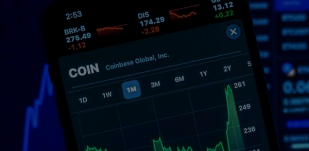How to Do Business in Belgium
Welcoming to foreign investors and open to international trade, Belgium is a land of opportunity. Luckily for UK-based companies, it’s only a short distance from the British Isles. Belgium’s three autonomous regions offer UK businesses a unique market to tap into, at the same time as giving Brits valuable access to the unofficial capital of the EU.

However, if you’re thinking about swapping your business associates from Brits to Belgians, there are some considerations to take into account first:
Business Culture in Belgium
The Belgian government has focused on attracting overseas investment in previous decades. This means that foreigners are set up to do well in the capital. The fact that both the EU and NATO headquarters are located in Brussels, is reflected in the business culture too.
What You Need to Know When Doing Business in Belgium
Whilst it’s tempting to start building your Belgian networks right away, there are still some things to bear in mind when doing business in Belgium.
- Location, location, location
- Political strategy
- Trading, imports and exports
- Taxes
- Population diversity
- Hiring locals
- Euro safety net
- Pharmaceutical bias
- Post-Brexit preferences
Location, location, location
As well as being the unofficial capital of the EU, Belgium borders the countries of France, Germany, Luxembourg and the Netherlands. This makes it an ideal gateway to doing business across Western Europe.
Political strategy
Brussels is the headquarters for the European Union, European Commission and NATO. It means that politically, it’s home to some of the most influential people in the world.
Choosing this location for business could mean networking with political figures and entrepreneurs who could provide global opportunities.
Trading, imports and exports
In recent years, Belgium has fallen to 46 in the ease of international trading rankings, compared to the US, which stands at 6, and the UK at 8 (December 2019). This shouldn’t make too much of a difference though, as it’s still classed as ‘Very Easy’, taking less than an hour to register and comply with import and export regulations there.
Just note that you won’t get access to the EU member state free trade benefits without actually setting up a Belgian company.
Taxes
While you may not need to worry about company formation or company registration in Belgium, paying attention to the taxes is important, particularly if you're thinking of hiring locals and need to make salary decisions.
Even those who are not operating Belgian legal entities must file a non-resident income tax return as a Brit. While you must declare all sources of income on this tax return (even from foreign companies), you will only be taxed on income from a Belgian source, such as a shareholder bank account or a securities account.
Corporate income tax ranges from between 25% to 50%, depending on your earnings.
Population diversity:
Belgium has three separate geographical areas:
- Flanders (northern region, primarily Dutch-speaking)
- Brussels capital region (central region, bilingual: French and Dutch)
- Walloon (southern region, primarily French-speaking)
- Eastern regions of the province of Liege (primarily German-speaking) - accounting for 1% of the population.
The wide range of languages spoken across the country makes Belgium an ideal place for the product-testing phase in your business plan. It's also worth noting that whilst English isn't an official language, it is spoken by 55% of its people.
Hiring locals
If UK businesses wish to invest in Belgium and hire locals, it’s important to consider how they will communicate. With three separate regions, ensuring that UK-based employees can speak one of the common tongues, French or Dutch, is recommended.
Both salaries and social security in Belgium are relatively high compared to other areas in the EU, with the minimum wage even higher than neighbouring Germany. As one of the five countries that form the World Bank Group, it’s clear that maintaining economic stability is of particular importance here.
Euro safety net
As part of the European Economic Area, Belgium uses Europe's single currency: the euro. Compared to many other currencies, the euro has a history of stability and is the second most traded currency in the world.
When you sign up to Clear Currency, you’ll be assigned a dedicated account manager. They can help make you aware of tools to mitigate currency risk - such as forward contracts - crucial if you plan to trade euros for pounds. This is an important consideration when dealing with multiple transactions, operating with tax efficiency and making international payments to staff or suppliers.
Pharmaceutical bias
In recent years, we’ve seen a huge weighting towards biotech and pharmaceutical businesses in Belgium. The country’s robust research and development techniques have boosted its reputation for medical trials and there are favourable Belgian laws. So if you’re in the pharmaceutical industry, Belgium might be the place for forming new business relationships.
Post-Brexit preferences
Since the UK officially left the EU, we’ve seen disruptions and halts to trading between the two regions. Fortunately, though, the UK is Belgium’s fourth-largest trading partner, which means that their economy still has much to gain from maintaining healthy trading relations with the UK.
This coupled with Belgium’s solid shipping infrastructure and large ports found to the north of the country, has meant that Brits might find doing business in Belgium to be even more favourable post-Brexit.
Key Takeaway
Trading in Belgium can be hugely beneficial for British businesses, especially if you can leverage the region’s favourable location and trading conditions. However, it’s worth doing your research into the options available to you before making the leap.
Opening a Clear Currency account is a great place to start if you’re looking for a fast, simple and secure way to manage your international payments. We offer competitive exchange rates, which means you can save more of your money when trading with Belgium. Find out more about how Clear Currency can help businesses, and sign up for an account today.
Clear Currency, a trading name of Clear Treasury (UK Trading) Ltd, is authorised and regulated by the Financial Conduct Authority.
Related Articles
How to Mitigate Foreign Exchange Risk
Currency risk can have a significant effect on the efficiency and profitability of any international business. Each exchange rate movement affects how much you receive from sales and what you pay to suppliers.
Read more
Moving to Dubai from the UK: Checklist
You’re ready for a new life overseas and have decided you’re moving to Dubai. Now it’s time to consider the various costs involved, from your visa and accommodation, to health insurance, shipping your belongings and bringing your beloved pets along too.
Read more
Currency Outlook Quarter 1 2023
Clear Currency looks back at the performance of the US dollar, euro and sterling in Q4 2022, and assesses what might be in store for Q1 2023.
Read more


